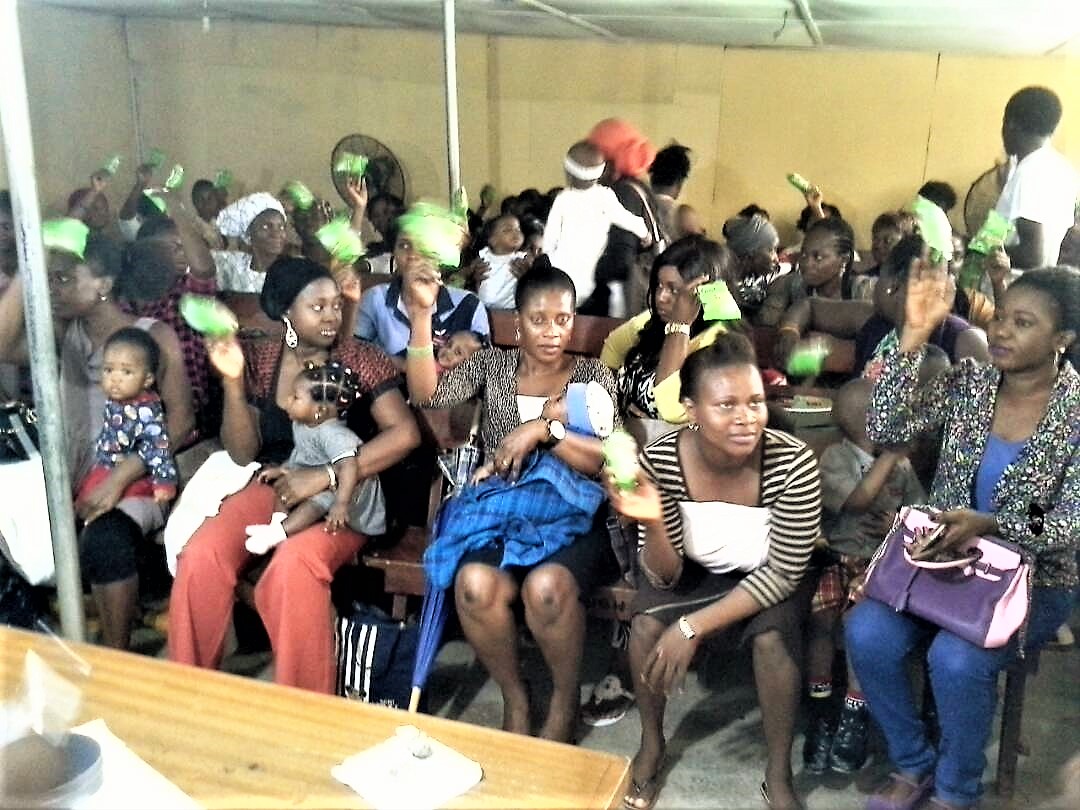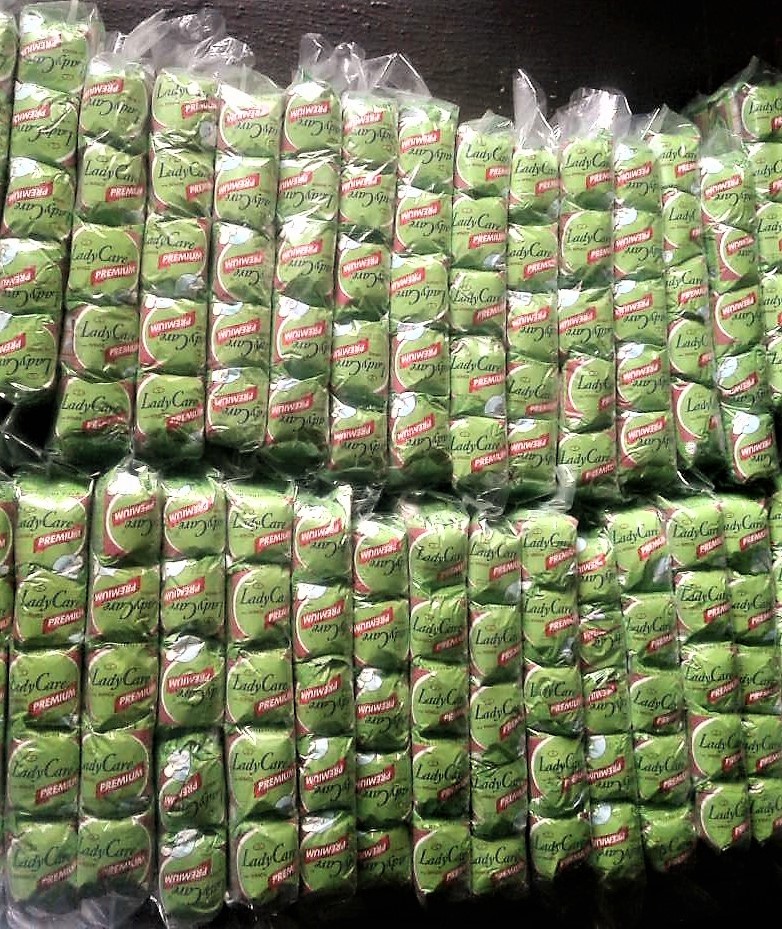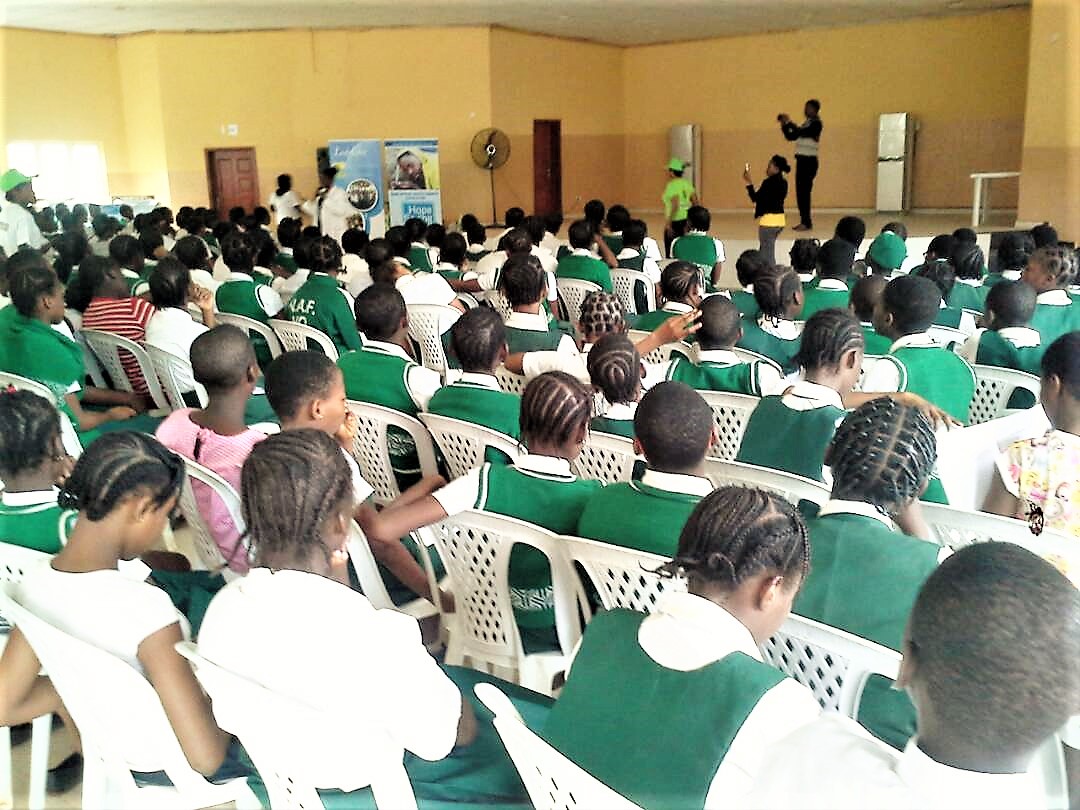As the first signs of menstruation are felt, they serve as constant reminders of the oncoming abuse and stigmatisation that most girls in Nigeria are about to face. What should be a proud moment in their lives, turns out to be their most dreadful.
According to UNESCO, 1 out of 10 girls in Africa miss school during their menstrual period and eventually drop out.
In Nigeria, sanitary pads costs an average of $1.30 per pack, while most families live below the poverty threshold of $1.20 per day. The high cost of sanitary pads in Nigeria have made them inaccessible for poor girls. In some situations, girls face sexual abuse in their quest for money to buy sanitary pads.
Menstruation is a dream-killer for most girls, as they are unable to attend school during menstruation. On the other hand, those who cannot afford a good menstrual pad, rely on old rags and tissue papers as alternatives. There is no denying the detrimental health impacts faced by poor girls and women due to these unhygienic practices.
The Pad-A-Girl project initiated by Hope Spring Water Charity Foundation aims to curb this ugly trend and reinforce the confidence of girls to be proud of their menstrual cycle. Other expected impacts of this project include:
- Increased girls’ presence and concentration in school activities;
- Reduced incidence of rape and abuse among poor school girls who search for money to purchase menstrual hygiene materials;
- Reduced incidence of disease and death from unhygienic menstrual practices among girls;
- Curbing the spread of taboos and myths associated with menstruation, including restriction from certain social activities such as playing with friends, cooking, sleeping in the same room as family members and entering places of worship.
- Facilitate the achievement of the United Nations’ Sustainable Development Goal 6 in Nigeria; and
- Increased knowledge of menstrual hygiene management among the younger generation, who would serve as change agents in their communities.
The Ifako community in Lagos State hosted the pioneer phase of the Pad-A-Girl project. In partnership with Sankins Nigeria Limited – producers of Lady Care sanitary pads – Hope Spring Water Charity Foundation organised a menstrual hygiene management workshop in three schools and the community general hospital.

The workshop kicked off at the children’s welfare section of Ifako General Hospital, with about 200 participants, comprising of mainly nursing mothers. Dr Abiri, a sexual health professional, sensitised the participants on common menstrual hygiene practices and urged them to pass on the knowledge to their children, especially girls.
Students of Lagos State African Church Grammar School, Barachel Group of Schools, and Ifako International School, were empowered through the workshop. They were inspired to become change agents to end deeply-rooted menstruation taboos and myths in their respective communities. About 1000 participants attended the workshop and received Lady Care sanitary pads.
The knowledge gap on menstrual hygiene management among school girls is mainly attributed to lack of confidence and opportunities in discussing menstruation-related topics. Hence, the workshop urged students to openly discuss the individual challenges they face during menstruation. The low response from the students reinforced the fact that most of the girls are ashamed to talk about menstruation amongst their peers. In order to get a glimpse of the menstrual challenges faced by the girls, they were asked to anonymously write them down. This idea encouraged the girls to share their challenges and also enabled the facilitators to discuss these challenges with the participants. The participants were also involved in a one-on-one discussion with medical experts from Lady Care Nigeria.

Some of the students acknowledged that they face both health and emotional challenges during menstruation, but are afraid or shy to discuss these challenges for fear of been stigmatised. The workshop enlightened the students on being proud and finding dignity in their natural cycle.
The two common menstrual hygiene management challenges faced by the participants are the high cost of the sanitary pads and poor menstrual hygiene knowledge. To solve these challenges, Hope Spring sought a long-term partnership with Sankins Nigeria Limited, to reach more girls with sanitary pads. To bridge the knowledge gap, Hope Spring will be including menstrual hygiene education as part of the core topics to be discussed in the WASH club, which are to be established in Nigerian schools.

Subsequent workshops aim to improve and replicate the same project in other communities and states in Nigeria through the support and partnership of corporate and government bodies.
The King of Ifako community, Oba Fatuse Abowole I, was fully in support of this project in his community and assisted with logistics necessary to ensure its success. In addition, Ifako Ijaye Local Government Council and Ebokpo & Adedayo Foundation supported this project through financial donations. To ensure sustainability of this project, the Pad-A-Girl Initiative welcomes partnerships from relevant stakeholders and renowned corporate bodies.
For more information, follow Hope Spring Water Charity Foundation on their website and social media channels including Facebook and Twitter.